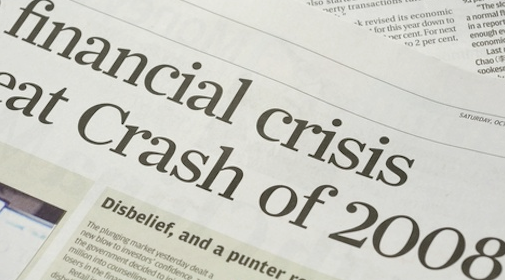There’s a reason why they’re called “good” days and “bad” days. We don’t get tested on our good days. We get tested during our more challenging and uncertain days. Those tough days. Therein lies the test. That’s when the true essence of our character, strength and our resiliency emerges – in the face of adversity.
During a recent interview, I was asked whether or not companies should be focused on promoting more work-life balance during difficult times, or when companies and the marketplace are struggling. Should companies offer a more flexible work schedule during a time of uncertainty and change? Here’s my take on it. Yes – but it depends…
After all, I’m sure that’s exactly what people want during questionable times; more change. (Sarcasm translating?) While the essence of the remote working is certainly well-founded and one I endorse, doing so NOW is a little to much, too late. While having people work remotely can be a sound business decision, unfortunately, because companies had no contingency plan and were blinded by profit, they’re now in a mad state of over-reacting. Subsequently, companies are delivering the wrong message to their employees.
“We all know that it’s tough out there. There’s a lot of fear, doubt and uncertainty. We feel like we are on shaky ground because we don’t know what’s going to happen. Our sales and revenue are dropping and we need to make some immediate changes to start saving money. That’s why we will be moving many of you into a remote work environment, so you won’t be coming into the office. Instead, you’ll be handling all of your daily responsibilities at home.”
Companies keep missing the mark. What employees really want is open, honest communication throughout the process, rather than be told what they need to change immediately, based on the company’s reaction. Employees want you to tell them how it really is, instead of trying to figure out what’s going on being closed doors in those ‘sneaky’ meetings with senior leadership. People want the real truth, even if it may sting a little, without pulling punches. And as crazy as this may sound, they actually WANT to be a part of this process and decision making as well!
This builds trust and loyalty during times of fear and uncertainty. Build consensus, have team support groups, schedule more discussion groups where people can share their concerns and support each other, rather than only focusing on the mundane, now virtual business ‘meetings’ on the phone. Build a stronger work community, especially with people now working remotely. Don’t leave them to survive on their own isolated island. Otherwise, the company is sending the most caustic message imaginable,
“WE DON’T CARE ABOUT YOU.”
Life is tough right now. Don’t turn a blind eye to how this is impacting your people and their families because it’s at this time when their morale, confidence, stress and fear levels are peaking. As leaders, more than ever, you need to be more supportive and connected your people, as isolation just makes it worse, for you and for them.
The greater cost is, when this too, shall pass, as it will, be mindful of the collateral damage you’ve created in the wake of how you managed this situation.
Scars run deep. People don’t forget. Trust in the company and leadership is eroded. Fear becomes the dominant internal driver for your employees, as they don’t know what’s coming down the road. While happier, sunnier days may be ahead, trepidation will always follow. Your people now know how you’ll really treat them during tough times, and where the real priorities are for every company, Profit over People. Now, think of the culture and environment you’ve now created.
What managers need to be doing now, more than ever is learning how to coach remotely, and, well, learn how to coach, period! Take a coaching course. Work with a professional coach. Schedule more one to one and group coaching sessions with your team, each individual and your peers to get a strong and accurate sense of where people are and what they really need that would give them the confidence and security that’s essential at this time in their career.
This way, your employees and peers can actually focus on doing their job without spending their days making the costly and negative assumptions, the “What if’s” (what if nothing changes, what if I get laid off, what if my income drops, what if I can’t pay my mortgage) and other costly distractions that create a fear-based mentality that’s only going to add to the complexity and longevity of a tragic situation.
The good news is, managers can help mitigate the pain of these external situations while still managing to build and sustain a supportive and healthy company culture. Managers, this is YOUR test – or final exam, if you will. While you may not have control over the current situation, the good news is, we are always at choice regarding how we respond to them.



